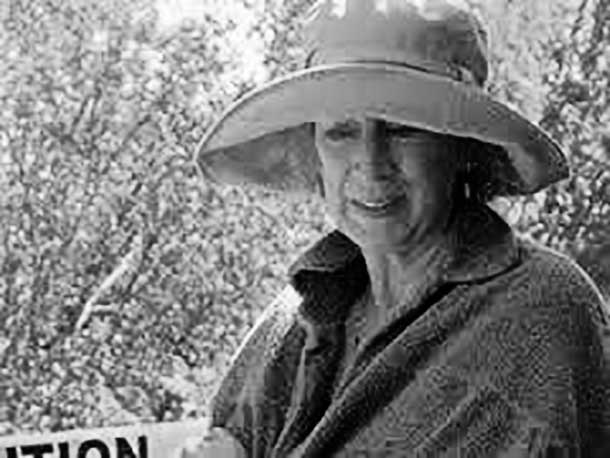
THUNDER BAY – LIVING – Standing in Thunder Bay’s Waverly Library glancing over books, this weekend, one may ask why do they write?
Why do writers write?
It was Thomas Mann who claimed, rather paradoxically, ‘’A writer is someone for whom writing is really more difficult than it is for others.”
Thinking about that question propels an abundance of answers.
American Allen Ginsberg said, “To write is to gain your own voice.” Ginsberg was a prolific writer who spoke and recited poetry virtually every week of his life. He possessed a photographic mind. Ginsberg was able to recite from memory
all fourteen pages of John Keats Hyperion off the top of his craw.
However, I recall a group of school children in a summer class where one of the young ones commented, ”Let’s get going. I just want to get my think on paper.”
Ernest Hemingway would cherish that. Hemingway began in journalism with the Toronto Star where he was inspired constructing simple sentences as the gist of his mill-right assembling words in his dispatches.
Later on, Hemingway adored employing the conjunction ‘and’ weaving thoughts into somewhat lengthier sentences. He saw the use of and as one would know the links in train cars joining them together on a track.
Keeping a continuance going.
Winston Churchill’s writing, and speeches, reveals he rarely used three syllable words. ‘’Be direct. Be straightforward,’’ Churchill would say. ‘’Because your chosen diction paints a picture of your true creative command with words in English.”
And writing is really a unique private persuasion for those who spend time writing. English writer Somerset Maugham, who suffered from a stammer, would have no difficulty finding readers of his books. For how would they know if a writer had a particular accent or an affected speech mannerism? There is a witty Somerset Maugham story of a time when a lady asked him where found his wonderful inspiration in such good writing.
Maugham replied, ‘’Madam, everyone has the same dictionary. It’s my inner intuition that puts those words into an order that frames chapters in my books.” Maugham saw his work that way. Being under the noses of readers charting the
course he’d left. Like signposts inside a book’s journey for them.
Later on, I was asking the question about why write? Where one shelving books at Chapters came across this way. “It’s because they really want to plot what they see in words.’’
The agent went on, ‘’as a graduate in Canadian Literature, I understand writers toil at developing their methods. They manipulate words. Put things into passages. Stories. Novels. They develop ideas like craftsmen working their raw materials. Making a shape of things.”
Then smiled, ‘‘in the end, things get published after a writer successfully completes his/her goal in writing on a theme. An essay. Poem. Short story. Creative book on things like “How To Get Better on a wealth of topics like that.“
He underscored his ideas, “I mean that’s their calling. That’s what makes them tick. Simple. We all knew it in grammar school. Didn’t we? It’s reading your frame of reference. Then, writing from the heart about it.”
Virginia Woolf claimed, ‘’every secret of an author’s soul is an experience written large in the pages of a writer.’’ While Natalie Goldberg loved to say, ‘’writers live at least twice. Once in their writing. Then in the reading of it.” Perhaps—even again– in the re-reading of their work by others who teach Creative Writing. Where both the professor and an assembled class re-discover the true lasting beauty of a good, substantial work on the written page.
A writer speaking in the USA once told us as University students that, ‘’writers, of course, end up writing stories. Or, perhaps I might say shadows of the heart of their stories. And they’re so grateful they can. Yet it will always drive them, inspire them for the advances they make coming back the next time they are at a desk.
Because writers always feel it’s never really quite good enough. There’s always more within their makeup. What you might call heir inner soul of discovery being expressed in words.”
Traveling to Thunder Bay by plane, not long ago, I was focusing on Jack Kerouac’s book On The Road. An original 1957 copy I had found in Chicago’s remarkably pristine and delightful Independent shop called Barbara’s Books. On the flight heading home I was re-discovering Kerouac. He’s a treasured author. Kerouac was exalting his witty salt of the earth advice to writers. As he would say in his New England accent, ‘’it ain’t whatca write. It’s the way atcha write it.”
Looking out from the plane Margaret Atwood’s wisdom in writing also occurred to me as I made penciled notations in the margins of Kerouac’s travel book.
While flying on a plane from one book launch to another, Atwood was up on a journey where her writing pen went dry. One thinks that’s quite a hold up in a writer’s stream of consciousness to write. However another vacuum in actual writing took place once on a train in New Zealand where a female author had stepped on board without anything to write with. Along that long journey she simply kept, silently, repeating to herself sequences where she was plotting the action in her future novel. Getting home soon afterwards, she fixed her billy of tea. Sat down and composed one of her best writing efforts from total memory. Gritty stuff.
Something to be said for the New Zealand author and Allen Ginsberg. Both so ably able to draw good sentences from their stock piled writer’s silo of fair thoughts, holding steadfast to the rightness of linking in their best way with words. sentences. Pages of thoughts presented an in Amore concentrated, homespun garret inside of which to do: something—further—cultivating a creative channel in good writing.
In Atwood’s end to her dried pen episode, she became emphatic about using pencil. In fact, two pencils. ‘’If one breaks. Your alternative still lives in the life of a second good graphite on hand,’ she smiled in the re-telling. One could almost imagine her looking, thoughtfully, out an airplane window as she sat before her audience.
Ronn Hartviksen

